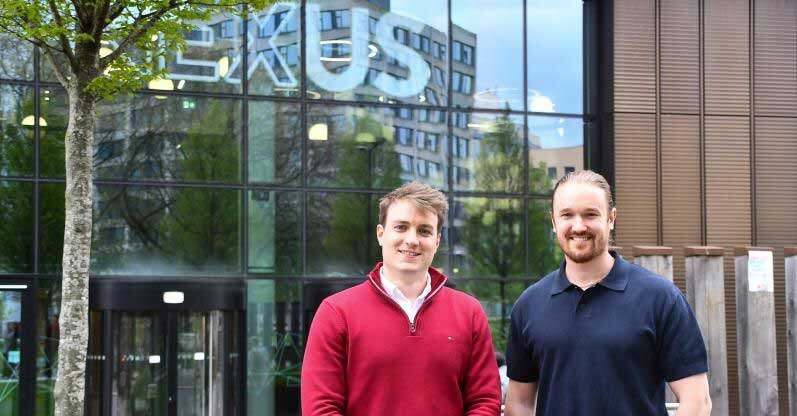Helping graduates start their own businesses and upskilling partner companies has boosted Leeds’ placing in this year’s Knowledge Exchange Framework (KEF).


The University has long held a strong position in the framework, which measures how the higher education sector has a positive effect on the wider world.
Areas examined range from the numbers of members of the public attending events, to income from research partnerships with businesses, public sector organisations and charities.
Other measures include success in continuing professional development (CPD) in which universities enhance the skillset of employees at organisations they work with.
Leeds works with a wide range of regional, national and international companies including Spanish multinational clothing company Inditex – whose brands include Zara – with staff taking part in CPD courses run by the University’s School of Design.
The University retains the highest score possible for intellectual property (IP) and commercialisation, as a result of attracting very high levels of income from IP as a proportion of research income, alongside attracting high levels of external investment for University spin-outs.
Leeds has also maintained its position in the best possible grouping – the top 20% – for income from consultancy work, contract research and use of facilities by the public and other sectors in the framework published by Research England, which is part of UK Research and Innovation – the country’s largest public research funder.
Professor Nick Plant, Deputy Vice-Chancellor: Research and Innovation at Leeds, said: “The results of this year’s KEF are testament to how the strength of our collaborations with partners and communities across the region, nationally and internationally enable the dissemination of our world-leading research, innovation, and knowledge for significant socio-economic benefit.
“By working in close partnership with innovators, we can support our entrepreneurs to turn their research into new technologies, spinouts and start-ups that make a positive difference to people’s lives.”
Seven areas are considered as part of the KEF: CPD and graduate start-ups; IP and commercialisation; local growth and regeneration; public and community engagement; research partnerships; working with business; working with the public and third sector.
Graduate start-ups
Over the last three years at Leeds, the number of graduate start-up companies has risen from 55 to 65 created each year.
This includes SPARK scholar Lyndon Timings-Thompson. The SPARK programme offers free support to enable University of Leeds students and graduates to set up their own business. A SPARK Enterprise Scholarship comes with a £3,000 grant and tailored business support including access to office space and advisers for current students.
Lyndon became a SPARK scholar after he learnt he could apply for the scheme even as an alumnus. He said the help and support received through the scheme had been invaluable.
Lyndon, alongside his business partner James McBride, run their company We Are Social Enterprise, from NEXUS, the state-of-the-art innovation business hub on campus.
We Are Social Enterprise is a construction recruitment agency that specialises in supporting disadvantaged groups with employment through both skills and financial support. The firm has placed more than 500 individuals into work with companies such as Willmott Dixon and Morgan Sindall Construction since its launch.
Both Lyndon and James have been recognised as some of Europe’s top young entrepreneurs following inclusion in Forbes’ 30 under 30 Europe list for 2024.
“By working in close partnership with innovators, we can support our entrepreneurs to turn their research into new technologies, spinouts and start-ups that make a positive difference to people’s lives.”
–Professor Nick Plant, Deputy Vice-Chancellor: Research and Innovation.
Other significant strengths at Leeds include a very high proportion of paper co-authorship with non-academic partners, and high levels of income from contract research with both big business and SMEs.
In its local growth and regeneration activities, Leeds has significant strengths which are not necessarily covered by KEF, including its work with Yorkshire Universities, the N8 Research Partnership, and the White Rose Consortium.
These partnerships have led to influential regional activity led by Leeds including Y-PERN and YPIP, which bring researchers and policy makers together to support evidence-based policy making that drives regional growth and productivity.
Investment
Alongside Research England’s KEF findings, a new report from investor Parkwalk and analytics firm Beauhurst places Leeds in the top rankings for investment into university spin-out companies in 2023.
Based on the number of equity deals secured by spin-out companies, Leeds placed 13th in the UK, with total equity investment of £25.3m.
And in an international survey, commissioned by Leeds Academic Health Partnership, Leeds was ranked second for investment into innovative wellness companies, and third internationally as a location for healthtech companies.
The University also pursues its support of spinout companies through Northern Gritstone – an independent investment company founded by the universities of Leeds, Manchester and Sheffield.
Professor Plant said: “Our partnerships that support the city’s Innovation Arc and Investment Zone drive regional innovation and economic growth through a place-based approach.
“We leverage research and innovation expertise, student talent, and collaborative partnerships to further enhance how we share knowledge to create a healthier, greener and inclusive future for Leeds, the region and across the globe, and to create a talent pipeline at the forefront of technological advances.”
KEF aims to increase efficiency and effectiveness in the use of public funding for knowledge exchange and to further a culture of continuous improvement in universities’ economic and collaborative impact.








































